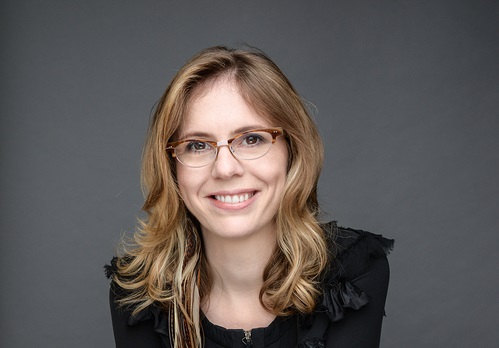
BERKELEY’S UNIQUE VACANCY IN MUSIC HISTORY
There’s a notable changing of the guard on area symphonic podiums. Two of the new figures are Asian-American, perhaps destined to follow the earlier Northern Californian paths of Seiji Ozawa and Kent Nagano.
While Francesco Lecce-Chong starts his tenure at the Santa Rosa Symphony, the Berkeley Symphony hosted guest Ming Luke for its opening concert Oct. 4. Luke stepped in to a vacancy unique in music history, caused by departing Music Director Joana Carneiro missing most of the past two seasons because of quadruple childbirths (triplets, then a single baby). Luke is one of four 2018-19 podium guests at the Berkeley Symphony. Out of that quartet the successor is likely to emerge.
Bouncing about the podium and smiling a lot, Luke had a hand-in-glove relationship with the music which was, for the most part, demanding and unfamiliar. Luke is music director of the Merced Symphony, and assistant conductor of almost everything else around. He is cool, sunny, and totally composed, and he clearly loves the medium. Some instrumental muddiness intruding in the Ravel “La valse” didn’t faze him at all. In keeping with the Berkeley tradition, the night’s repertory was modern, post-World-War-Two, half of it from living female composers.
Highlight of the night was one of those nebulous mood pieces that the English composer Anna Clyne, 38, does so richly. Her 23-minute tone poem “Night Ferry” (2012) was turned inward, exploring the turbulence of the mind (cyclothimia), much of it immersed even further into the bass register than Sibelius’ music. Her restless swirls and brooding storms, as well as her title, were inspired by poems and their “big sea.”
Not content to draw inspiration from just these sources, Clyne the artist doubled down, depicting a multi-color version of a monstrous ocean which was the most interesting original art work I’ve encountered in any printed program. Her multiple approach was fetching: If you didn’t like the poetry, nor the mental-health theme, nor the art work, nor the ocean, there was also—eureka!—the music, which drew on her considerable skills at orchestration for some very fulfilling listening. Without question her multi-media approach added immeasurably to communicating the sonics.
Clyne is the Berkeley Symphony’s composer in residence this season, providing continuity on a bumpy year of podium transitions.
Cementing “La valse” on to the end of “Night Ferry”—a very unorthodox move, to which the late Maurice Ravel was in no position to voice his approval—proved surprisingly congruous. Ravel’s work races the traditional waltz toward an ever madder state, even as Clyne dealt with the troubled mind (Earlier on she had been inspired by Franz Schubert’s mental vacillations).
On the podium, Luke was totally into his idiom, with the confidence more that of a veteran maestro. His personality was engaging and his music vivid, punctuated with cues for the players where appropriate. But I wouldn’t venture whether he’ll be picked the BSO maestro next year; the last time around, for instance, the BSO astonished every one by selecting a very unfamiliar candidate from abroad over several tried and tested veterans—in other words, going with a dark-horse choice.
Of course, the BSO is not like other orchestras. It plays audacious pieces, with more commissions and premieres in its four-concert masterworks season than typical orchestras do in a myriad of weeks and weeks. Safe to say, it is usually 100% unpredictable.
The latest young violin phenom is Benjamin Beilman, tackling the thorny virtuoso challenge from Jennifer Higdon. I found very little of this jagged Violin Concerto that was rewarding for the Zellerbach Hall audience, but a lot to test the acumen and sheer digital velocity of Beilman, who sailed through its musical high hurdles convincingly.
Afterward Beilman added the Largo movement of the Bach C Major Sonata as encore, showing that vibrato was also a component in his tool chest.
The concert opened with one of the most joyous, exuberant pieces, the 1954 Festive Overture by Shostakovich, who is better known for his many serious and troubled scores. Speculation is that it reflects the Russian composer’s great relief after the death of the despotic dictator Stalin, who had turned music critic to denounce the composer’s work in print and raise very real fears that the composer was destined to vanish into the feared gulag prisons.
Berkeley Symphony’s 48th season opener of this year of guest conductors. Next: Jan. 31, 2019. For info: (510) 841-2800, or go online.